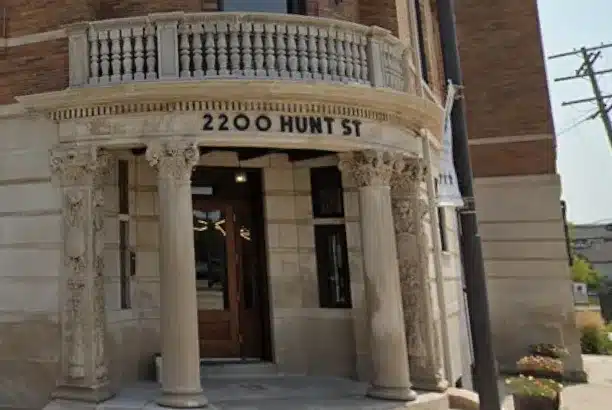What Are the Motorcycle Laws in Texas?
Texas, with its vast open roads and scenic landscapes, is a haven for motorcycle enthusiasts. However, riding a motorcycle comes with a responsibility to adhere to the state’s laws designed to protect riders, passengers, and the public. RTRLAW shares an overview of the key motorcycle laws in Texas, covering everything from helmet requirements to lane splitting, to ensure you enjoy a safe and lawful riding experience.
What Are the Specific Helmet Laws for Motorcyclists in Texas?
In Texas, the law requires all motorcycle riders under the age of 21 to wear a helmet that meets the Federal Motor Vehicle Safety Standard (FMVSS) 218. Riders over 21 have the option to forego wearing a helmet, provided they have successfully completed a motorcycle operator training and safety course, or they can provide proof of adequate health insurance coverage. This flexibility offers mature riders a choice, while prioritizing safety for younger, potentially less experienced motorcyclists.
Sylvia
I highly recommend RTRLAW as they treated me with kindness and empathy during a very stressful time. On top of being good people, they are professionals and excel at what they do. We worked closely with Attorney Monika, who was very knowledgeable, an excellent listener and communicator, and always kept us updated about our case. This law firm genuinely cares about their clients, and I am so grateful for their support.
What Are the Minimum Insurance Coverage Requirements for Motorcycles in Texas?
Texas mandates that all motor vehicle operators, including motorcyclists, carry a minimum amount of liability insurance. This includes:
- $30,000 for bodily injury or death per person
- $60,000 for total bodily injury or death per accident
- $25,000 for property damage per accident
These requirements are intended to provide financial protection for all motorists in the event of an accident.
What Are the Rules of Lane Splitting for Motorcycles in Texas?
Texas law does not permit lane splitting, which is the practice of riding a motorcycle between lanes of slow-moving or stopped traffic. While proponents argue that lane splitting can reduce traffic congestion and may even decrease the risk of certain types of accidents, it remains illegal in Texas, primarily due to safety concerns.
When Is Passing on the Right Permitted in Texas?
Motorcyclists in Texas are allowed to pass vehicles on the right under specific conditions, such as when a vehicle is making a left turn or when on a roadway wide enough for two or more lanes of vehicles in each direction. However, this must be done with caution and within the bounds of the law to ensure the safety of all road users.
What Motorcycle Safety Features Are Required in Texas?
Texas law requires motorcycles to be equipped with certain safety features, including but not limited to:
- At least one headlamp that is visible from a minimum distance of 1,000 feet to the front.
- A tail lamp that is visible from a minimum distance of 1,000 feet to the rear.
- Reflectors, turn signals, and a horn.
- Mirrors are mounted on each side of the motorcycle.
- A permanent, regular seat for the rider, and if carrying a passenger, a passenger seat and footrests.
These equipment standards are designed to increase the visibility and safety of motorcycles on the road.
What Is the DUI Policy for Motorcycle Riders in Texas?
Texas enforces strict laws against riding a motorcycle under the influence of alcohol or drugs. The legal blood alcohol concentration (BAC) limit is 0.08%, and penalties for riding under the influence can include fines, imprisonment, and the suspension of the rider’s license. The state’s zero-tolerance stance on DUI emphasizes the importance of sober riding.
Call RTRLAW Injury Lawyers for Help with Your Accident Case Now!
Adhering to Texas’s motorcycle laws is essential for ensuring the safety of riders, passengers, and the broader public. From wearing helmets to understanding the nuances of lane splitting and insurance requirements, being informed of these regulations can contribute to a safer and more enjoyable riding experience. Whether you’re a seasoned rider or new to the motorcycle community in Texas, respecting these laws not only protects you but also enhances the riding culture for everyone on the road.
Riding a motorcycle in Texas offers an unparalleled sense of freedom, but with that freedom comes the responsibility of knowing and following the state’s motorcycle laws. Stay informed, stay safe, and enjoy the ride.
If you’re injured in a motorcycle accident that wasn’t your fault, contact RTRLAW or call us toll-free at 1-833-HIRE-RTR (1-833-447-3787) for a free, no-obligation case review.
Revision History:
- Feb 12, 2026 at 3:33 pm by Nicholas Thompson (displayed above)
- Jan 9, 2026 at 5:03 am by victor
- Dec 26, 2025 at 11:16 pm by victor


 CALL US NOW
CALL US NOW TEXT US NOW
TEXT US NOW































